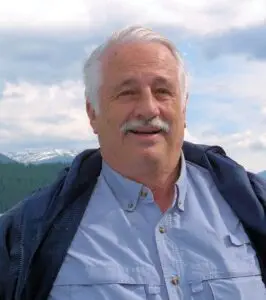
Ted Manning is President of Tourisk Inc., an international consulting firm based in Ottawa Canada and providing integrated planning for heritage sites and tourism destinations worldwide. He has worked in over 50 countries in Asia, Africa, Europe, and the Americas focused on protecting the world’s special places. He has also led environmental projects in China and Africa focused on the links between policy and practical solutions in communities and on the use of participatory methods to define and deliver sustainable solutions. He is currently an Associate Member of the International Club of Rome and vice-chair of the Canadian Association for the Club of Rome.
He led the development of indicators of sustainability for the global tourism sector and currently advises the UN World Tourism Organization and the Global Sustainable Tourism Council and several other NGOs on this subject. He has worked for many years on means to help communities to achieve their social economic and environmental goals. He was a researcher and director for several parts of the Canadian government, including environment, development, and tourism departments.
He has also served as Chair of the Board of Directors of the Canadian Association for the Club of Rome, a full member of the Club of Rome, President Canadian Association of Geographers, Adjunct Professor of Geography and Environmental Studies at Carleton University and Associate Director Sustainable Development of the Foundation for International Training.
His website is www.tourisk.com.
Summary:
How do we define a desirable and feasible future? Who gets to define or participate? Why do the popular “goals” such as “growth”, GDP or material consumption not seem to serve? Dr Manning draws on several decades of work on sustainable development, integrated community planning and planning of tourism destinations and World Heritage Sites worldwide to address how real communities deal with this issue and identify success stories. While the world struggles to define a common goal and shared metrics, communities worldwide are finding ways to describe a future they want and which they may attain. Can we scale this up, or share acceptable outcomes? Can we remove the barriers to doing so from the path to wellbeing? We cannot fix what we cannot measure – nor can we really discuss what matters.
Leave a Reply